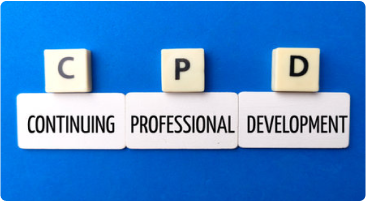
In the rapidly evolving landscape of education, the role of a teacher extends far beyond the traditional classroom setting. It encompasses a commitment to lifelong learning, adaptability, and a proactive approach to personal and professional growth. For aspiring educators at a B.Ed college, understanding the significance of Continuous Professional Development (CPD) is paramount. This blog explores the multifaceted benefits of CPD and provides insights into how it shapes the journey of an educator.
Why Continuous Professional Development Matters
Education is a dynamic field, continuously influenced by advancements in technology, research, and pedagogical strategies. CPD ensures that educators remain informed about the latest trends and innovations. For instance, the integration of digital tools in the classroom, such as interactive whiteboards and online learning platforms, requires teachers to acquire new skills and adapt their teaching methods accordingly. By engaging in CPD, educators can seamlessly incorporate these advancements into their practice, enhancing the learning experience for their students.
Effective teaching is an art that requires continuous refinement. CPD provides educators with opportunities to develop and enhance their teaching skills through workshops, seminars, and training programs. These professional learning experiences offer insights into diverse instructional strategies, classroom management techniques, and assessment methods. By exploring new approaches and reflecting on their practice, educators can foster a more engaging and supportive learning environment.
CPD is not solely about acquiring new knowledge; it is also about personal and professional growth. Engaging in CPD encourages educators to set goals, reflect on their achievements, and identify areas for improvement. This process of self-evaluation and goal-setting fosters a growth mindset, empowering educators to pursue excellence and resilience in their careers. Moreover, CPD opportunities such as pursuing advanced degrees or certifications can open doors to career advancement and specialization.
Professional development often involves collaborative learning experiences, where educators come together to share ideas, challenges, and best practices. This collaborative approach promotes a culture of continuous improvement and professional camaraderie. Networking with peers, mentors, and experts in the field through conferences, professional organizations, and online communities can lead to valuable connections, mentorship opportunities, and collaborative projects. These relationships enrich the professional journey and provide support and inspiration.
Ultimately, the goal of CPD is to improve student outcomes. When educators are well equipped with the latest knowledge, skills, and strategies, they can better address the diverse needs of their students. Research shows that teachers who engage in continuous professional development are more effective in their teaching practices, leading to higher student achievement and engagement. By investing in their own growth, educators directly contribute to the success and well-being of their students.
Strategies for Effective Continuous Professional Development
Reflective practice involves regularly evaluating one's teaching methods and experiences to identify strengths and areas for improvement. Keeping a reflective journal, participating in peer observations, and seeking feedback from colleagues and students are effective ways to engage in reflective practice. This ongoing self assessment fosters a deeper understanding of one's teaching and promotes intentional growth.
Professional Learning Communities (PLCs) are groups of educators who collaborate to share knowledge, discuss challenges, and support each other's professional growth. Joining or forming a PLC within your school or district can provide a structured environment for ongoing learning and collaboration. PLCs can focus on specific topics such as curriculum development, technology integration, or inclusive practices.
Workshops and conferences offer intensive learning experiences on a wide range of topics. Attending these events provides opportunities to learn from experts, engage in hands-on activities, and network with other educators. Many professional organizations and educational institutions offer annual conferences and workshops that focus on current trends and best practices in education
Advanced degrees and specialized certifications can significantly enhance an educator's knowledge and expertise. Many universities and colleges offer graduate programs in education, leadership, and specific subject areas. Additionally, certifications in areas such as special education, English as a Second Language (ESL), or educational technology can provide specialized skills that benefit both teachers and their students.
The rise of online learning platforms has made professional development more accessible than ever. Websites such as Coursera, edX, and LinkedIn Learning offer a plethora of courses on various educational topics. Online courses and webinars provide flexibility, allowing educators to learn at their own pace and convenience. Many of these platforms also offer certificates upon completion, which can be added to professional portfolios.
Continuous Professional Development is a cornerstone of effective teaching and a fulfilling career in education. For aspiring educators at a B.Ed college, embracing CPD means committing to a journey of lifelong learning, growth, and excellence. By staying current with educational trends, enhancing teaching skills, fostering collaboration, and focusing on student outcomes, educators can make a profound impact on the lives of their students and the broader educational community.
As you embark on your teaching career, remember that the path to becoming an exceptional educator is paved with opportunities for continuous learning and professional growth. Embrace these opportunities with enthusiasm and dedication, and you will not only transform your own practice but also inspire and empower the next generation of learners.